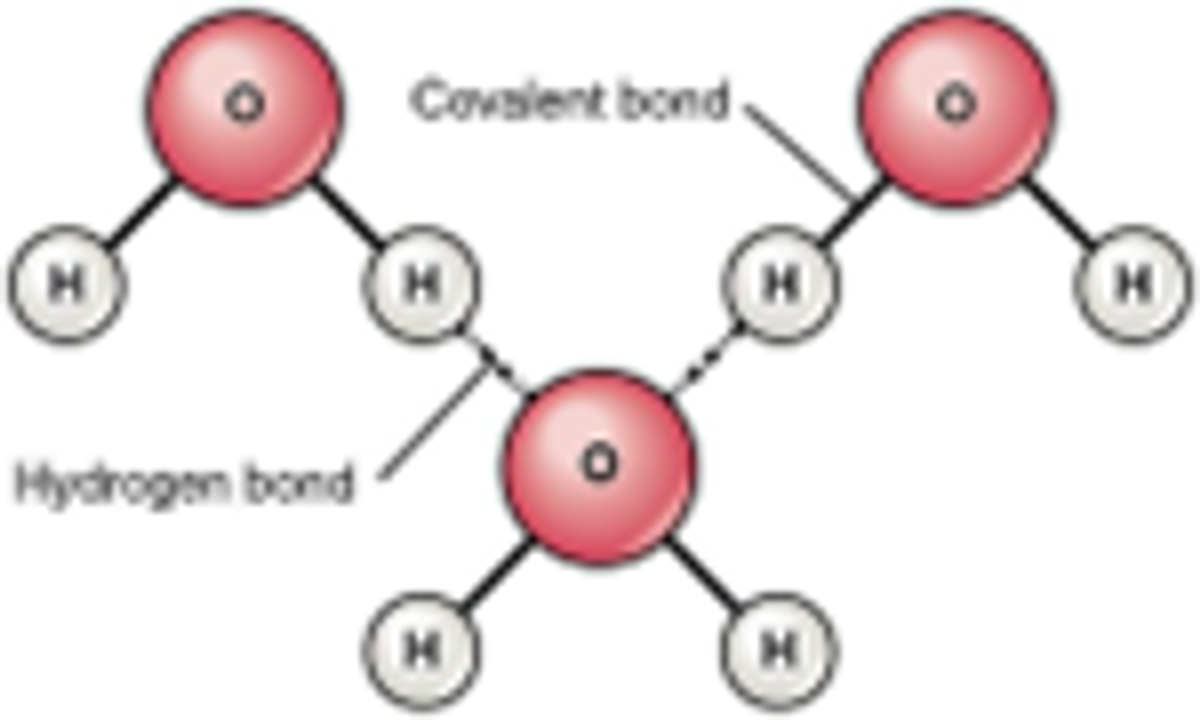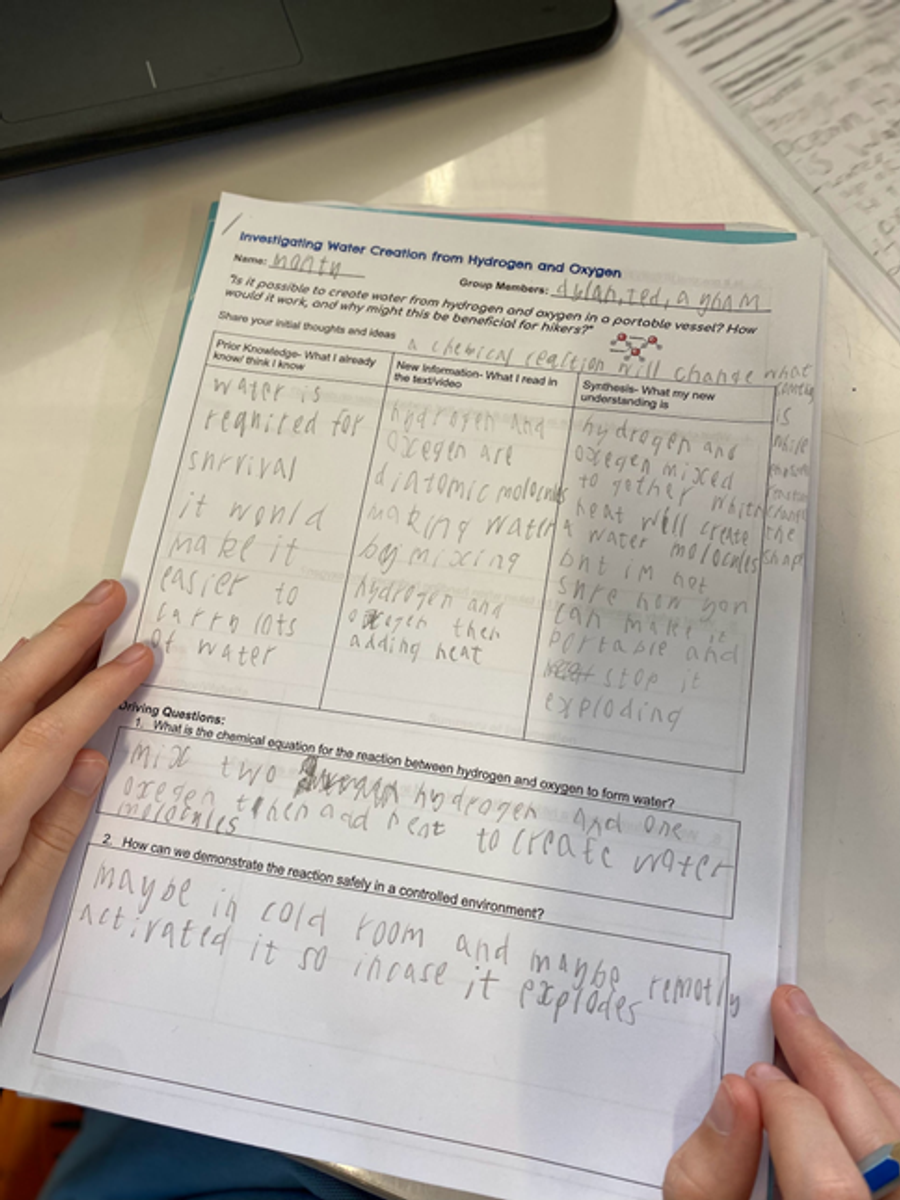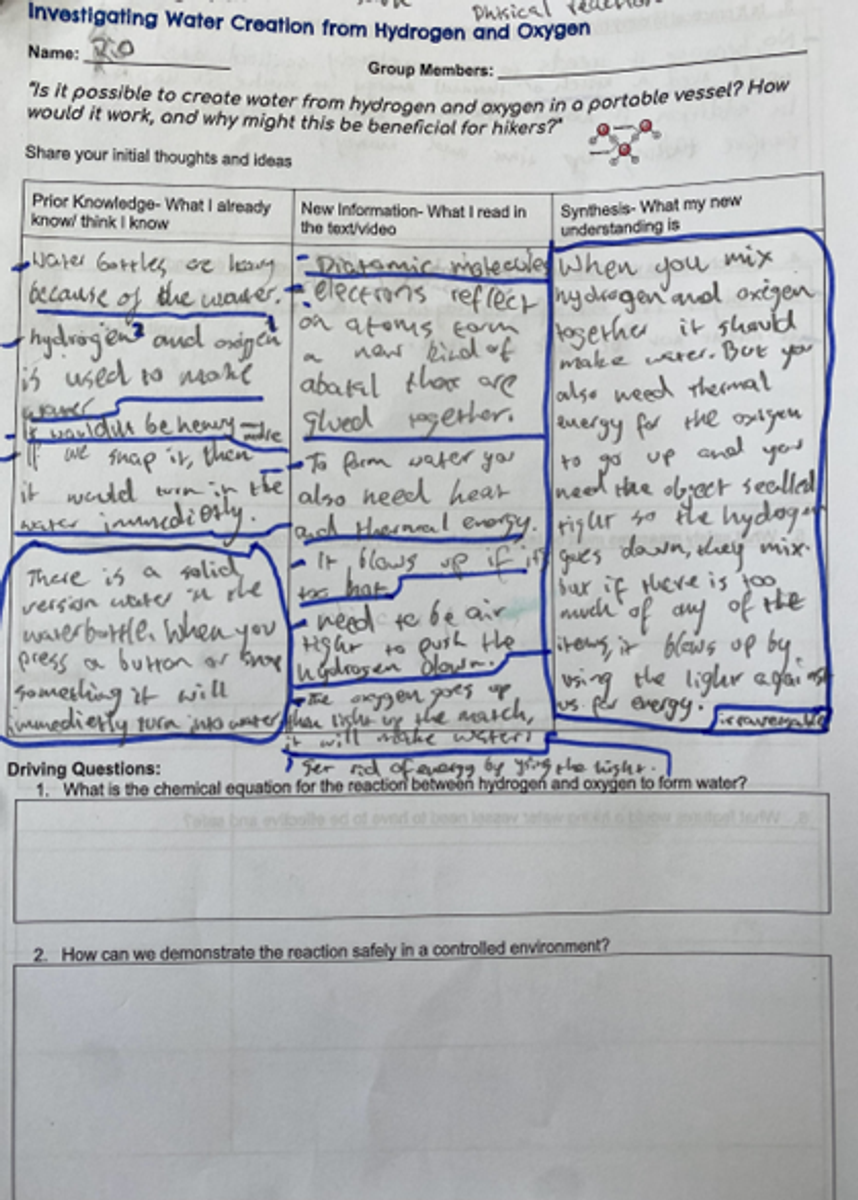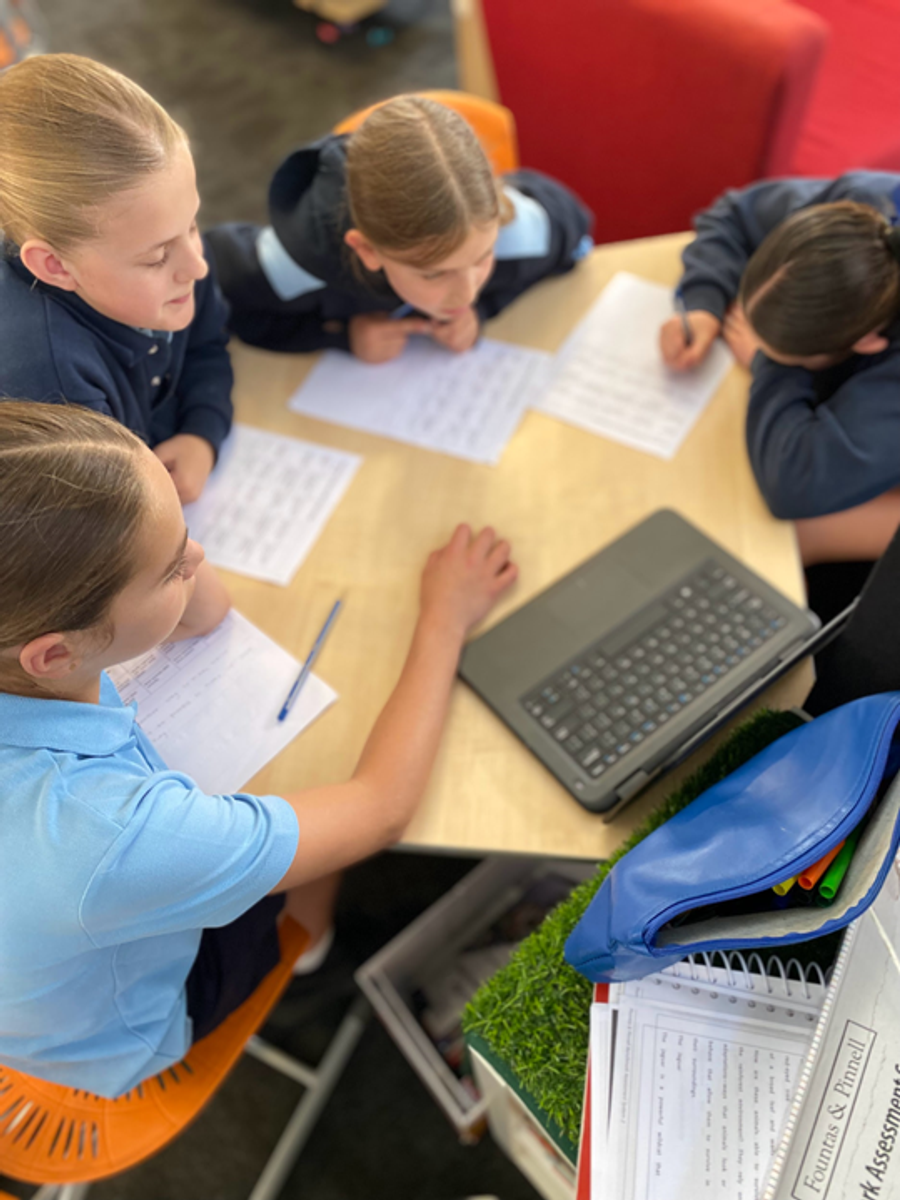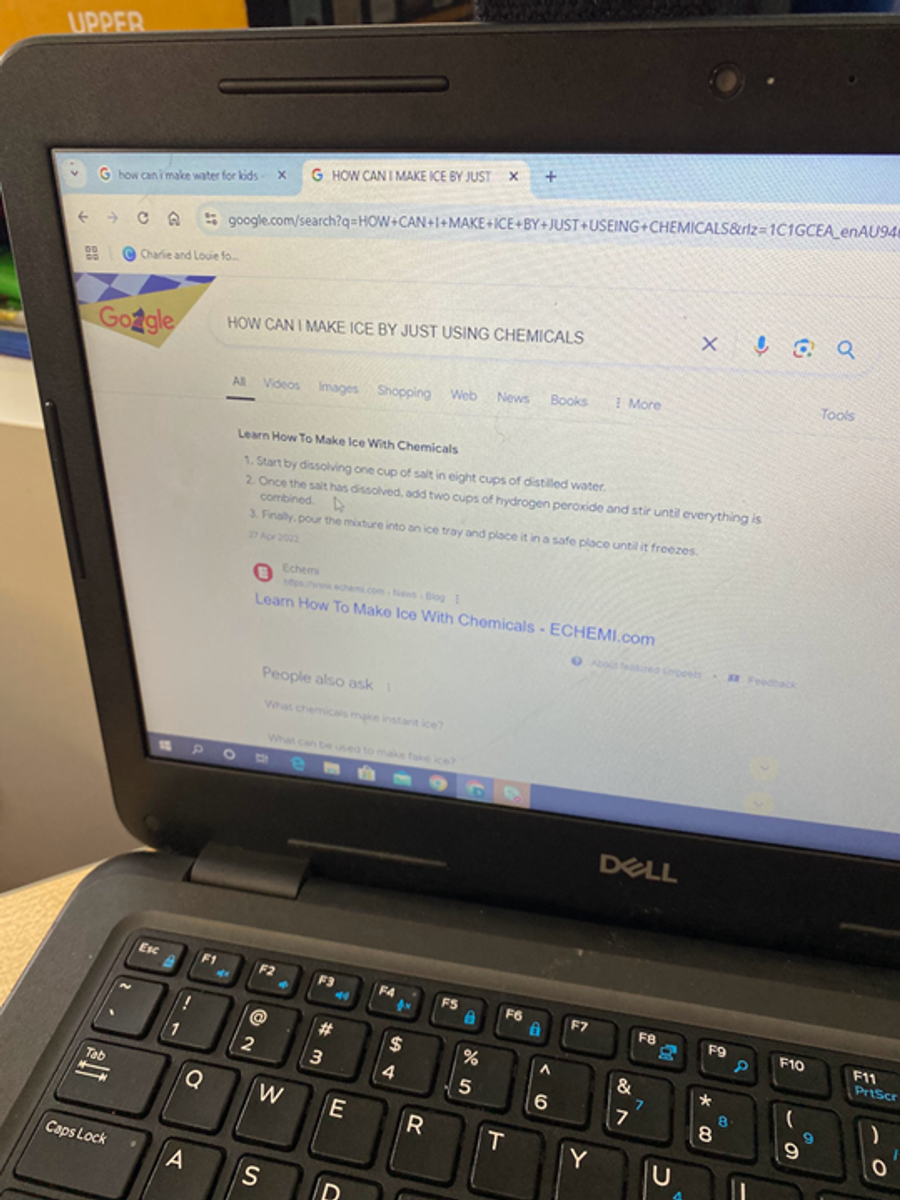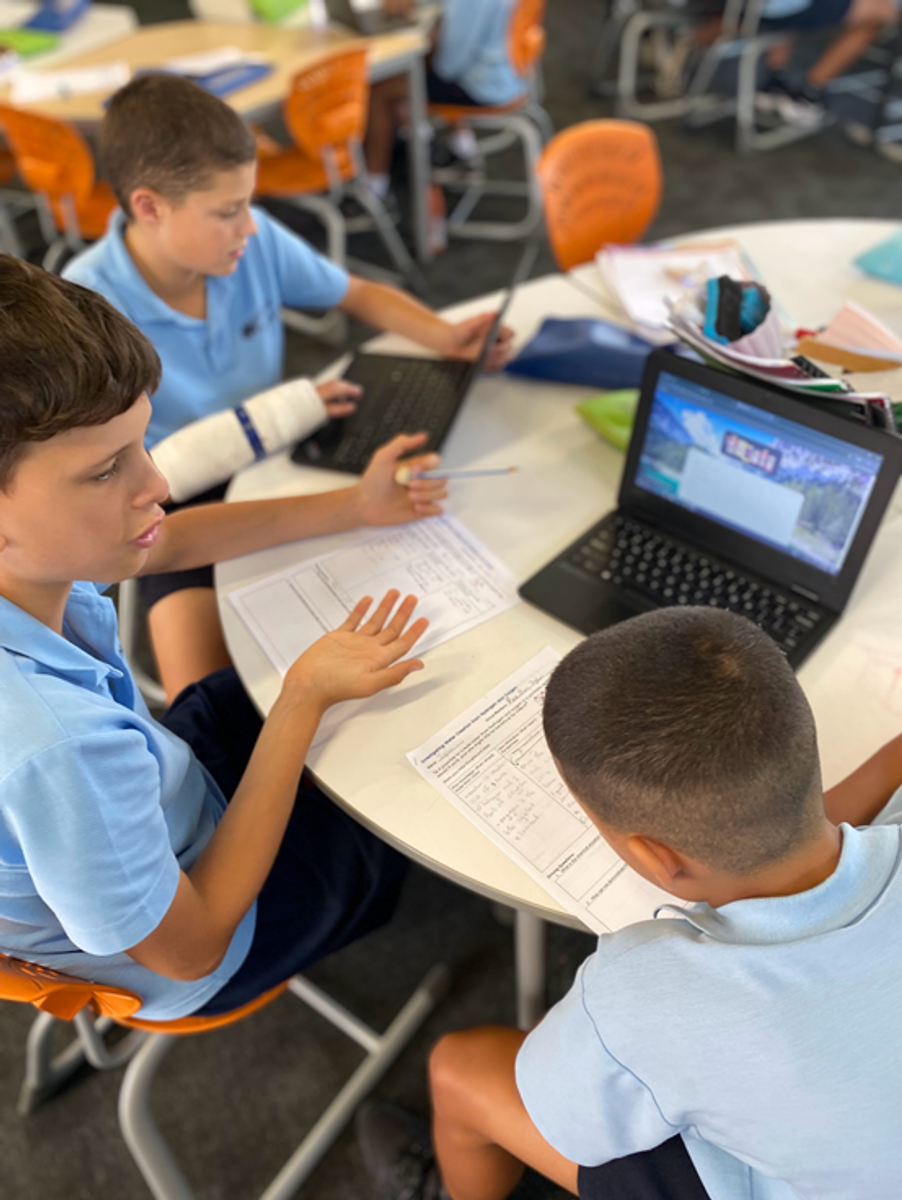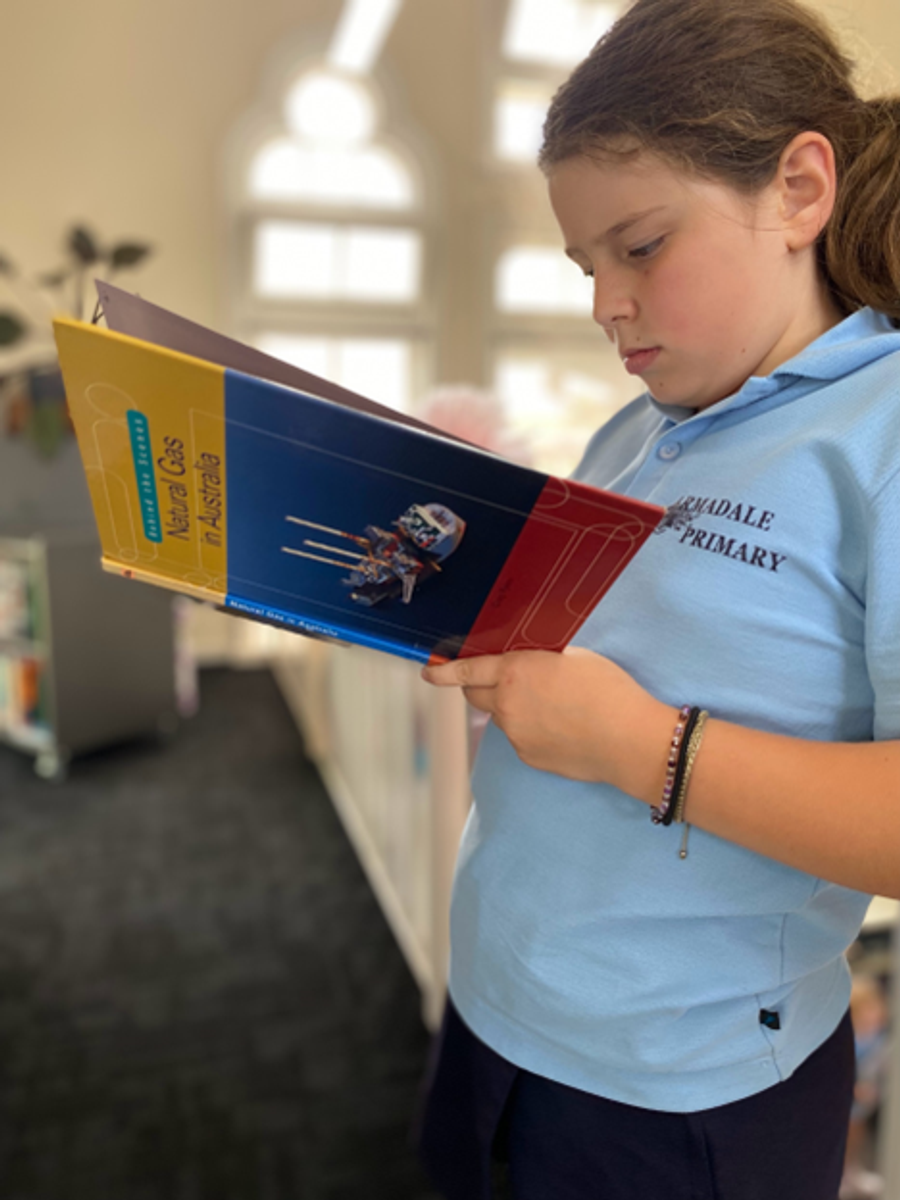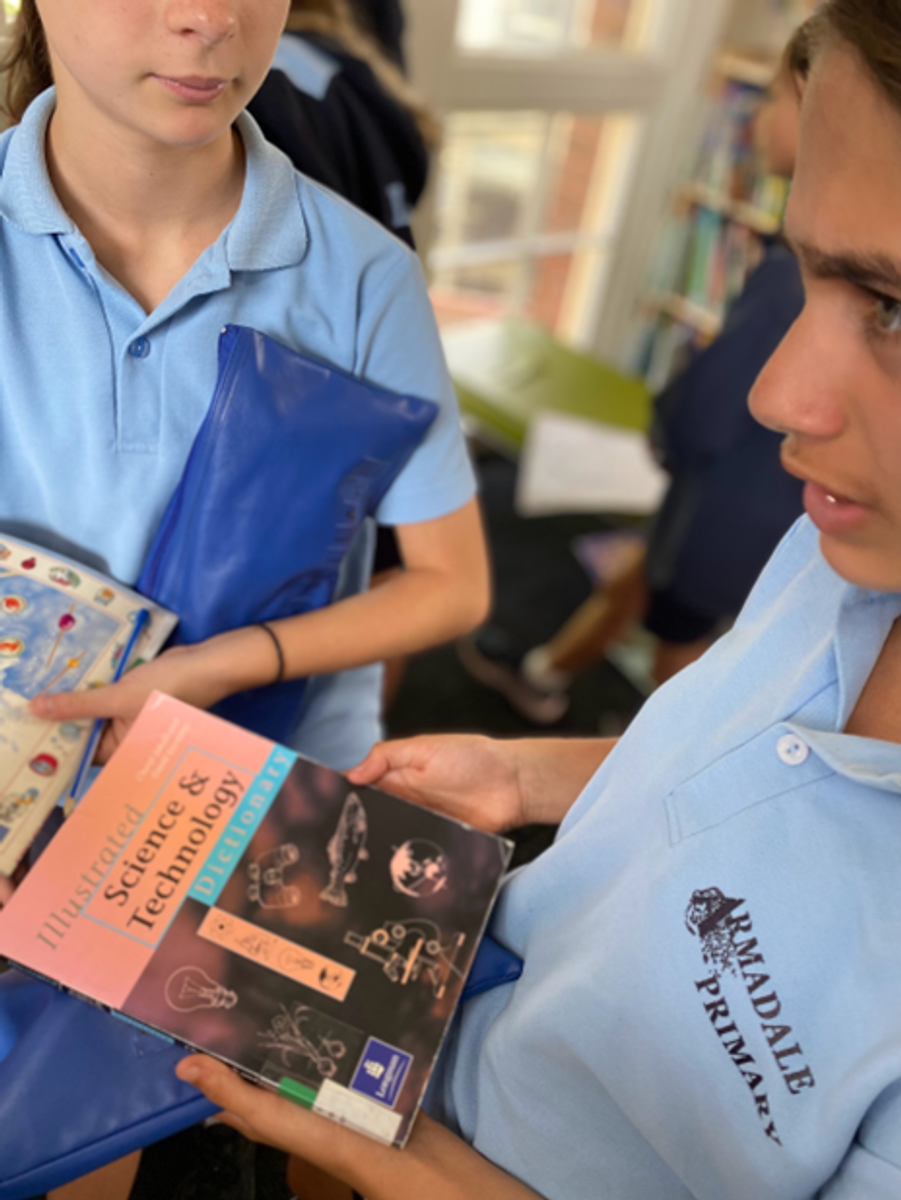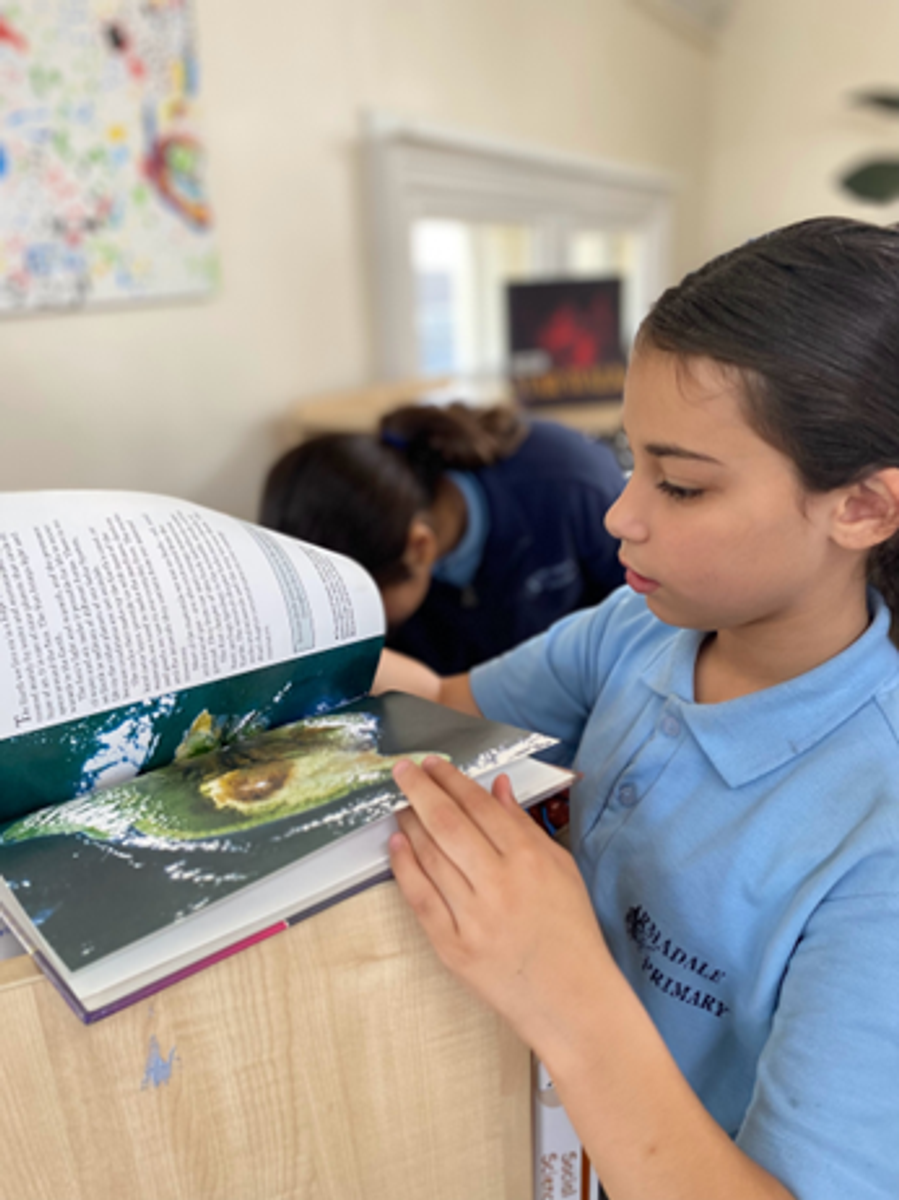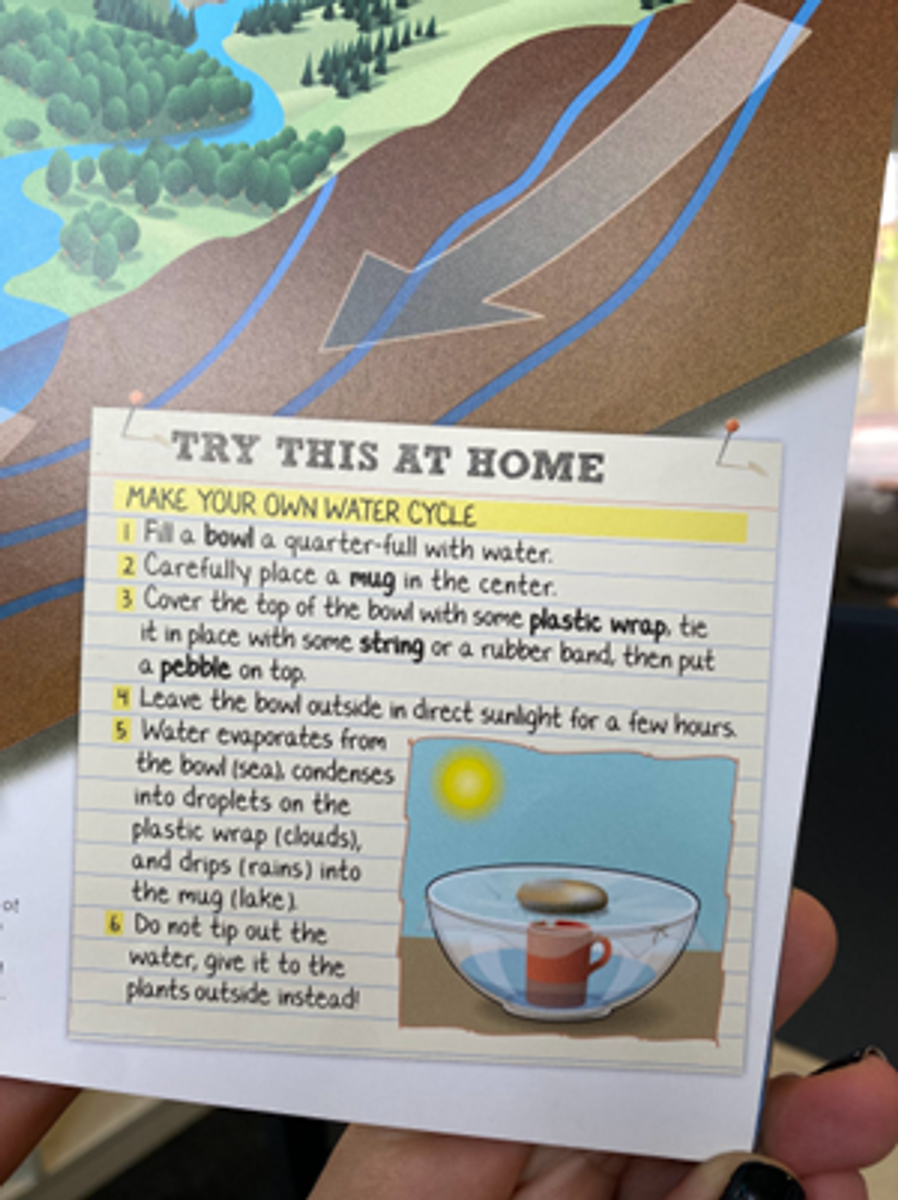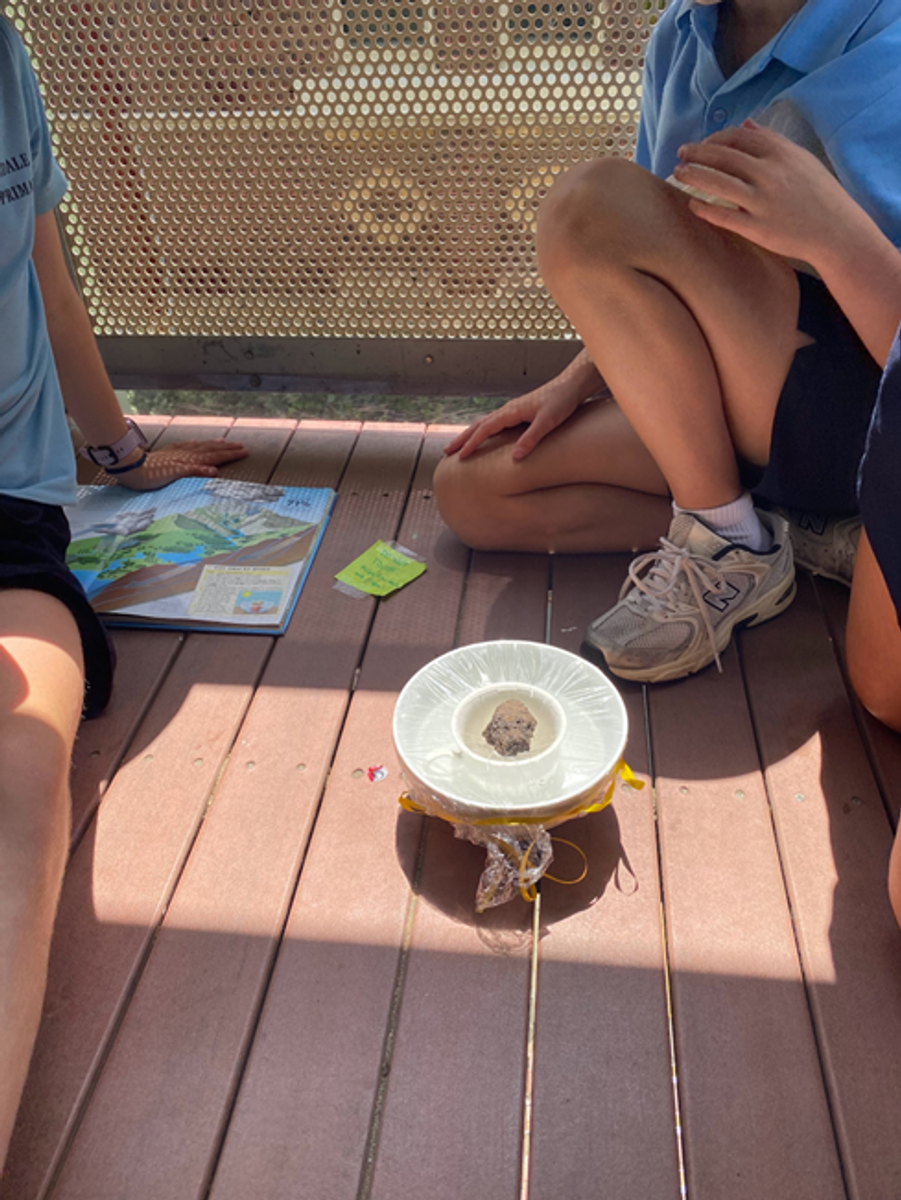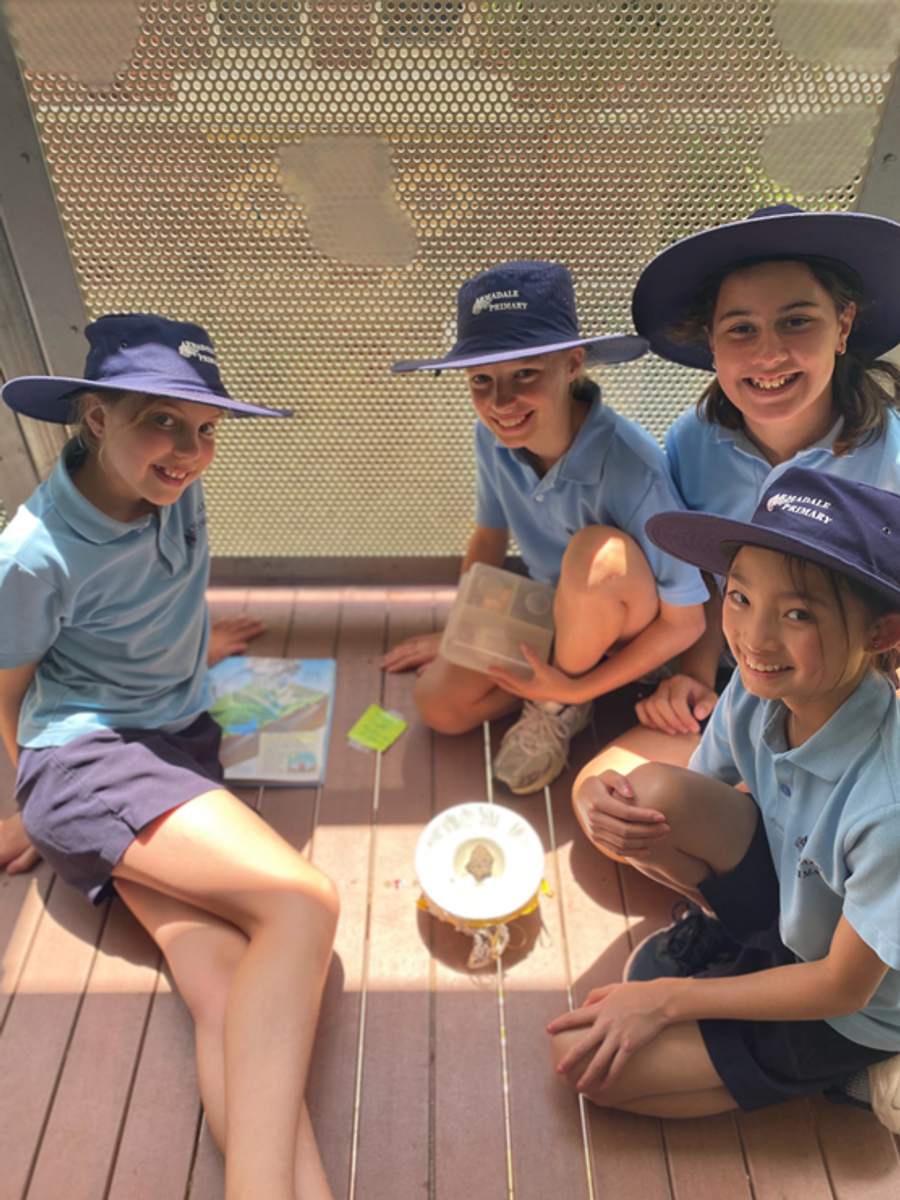Year 5/6 Bulletin
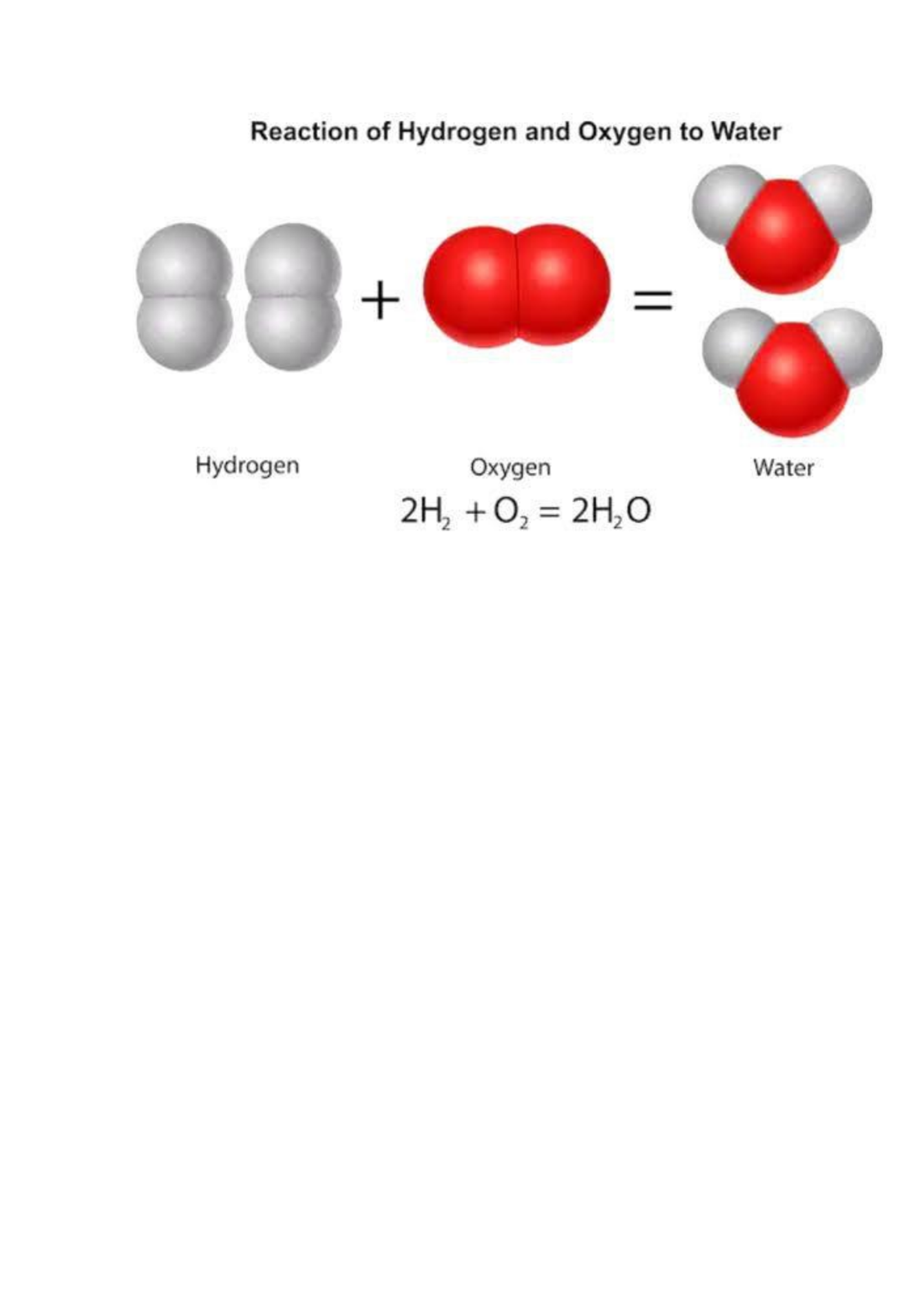
Science
Investigating Water Creation from Hydrogen and Oxygen
Purpose:
To think and act like scientists by researching the practical and safety challenges of using scientific principles, like combining hydrogen and oxygen to create water, and exploring how innovations can solve real-world problems.
“Is it possible to create water from hydrogen and oxygen in a portable vessel? How would it work, and why might this be beneficial for hikers?”
Learning intentions:
To understand the chemical process of how hydrogen and oxygen combine to make water and discuss the practicality of using this process in a water container for hiking.
Learning experience overview:
Whole (15 minutes):
1. Pose the question:
“Is it possible to create water from hydrogen and oxygen in a portable vessel? How would it work, and why might this be beneficial for hikers?”
Allow students to share their initial thoughts and ideas.
What is it that we already know/or think we know about this?
Students responses:
-'Water is made up of 2 parts: Hydrogen and 1 part Oxygen’
-‘It would be lighter carrying a gas than water’
-‘It would help hikers since it would not be as heavy as water’
-‘Works with all kinds of hydrogen’
-‘Gases are usually stored in tanks’
-‘Hydrogen is the lightest atom’
-‘Oxygen is the 4th lightest element’
2. We then watched a short video - Chemical Reactions: Hydrogen and Oxygen form Water.
The students used the new information from this clip and their prior knowledge of the subject to develop a new understanding
Small (30mins):
Group Investigation
Students broke off into groups to discuss how best to investigate this and begin researching the following -
● The chemical process of creating water from hydrogen and oxygen
● Safety measures when handling hydrogen and oxygen
● Potential designs for a portable water vessel that could safely create water
● Environmental and practical implications for hikers using such a device
Students had a variety of ways of investigating and ideas when it came to finding information. One group investigated the science behind our instant ice pack in first aid bags, as this is a similar idea and also happened due to a reaction
Others discussed theories based on their findings-
Some conducted experiments for information and others headed to the library -
Whole (10 minutes):
Wrap-up:
Recap the main points discussed in the lesson.
Reflect on the feasibility and implications of creating water from hydrogen and oxygen for hikers.
Identify the areas of research you need to strengthen using the rubric provided.
Assessment of Research Skills and Knowledge
| Criteria |
|
|
|
|
Research Quality |
Thorough research with multiple credible sources. |
Good research with several credible sources.
|
Basic research with limited sources. |
Minimal research with no credible sources. |
Understanding of Concepts |
Demonstrates deep understanding of chemical reactions and safety considerations.
|
Shows a good understanding of concepts with minor gaps. |
Basic understanding of concepts; some misconceptions. |
Poor understanding of concepts; significant misconceptions. |
Organisation and Clarity |
The information is well-organized and clearly presented.
|
Mostly organised with minor clarity issues. |
Some organisational clarity issues are present. |
Poorly organised and unclear presentation. |
Citations |
All sources are cited correctly and thoroughly.
|
Most sources cited correctly. |
Some sources cited; errors present. |
Few or no sources are cited correctly. |
Reflections:
- ‘I found out that 20% of the earth doesn’t have access to clean water’
- ‘We still need more research and experimenting as it is still unsafe’
- ‘We experimented with evaporation. It wasn't as successful as we thought’
- ‘We think it's possible, but we don't think it will work as a drink bottle’
- ‘I don't think it will work because it requires a lot of equipment and heat’
- ‘It’s not possible as there is a high risk of explosion’
- ‘The metal required will be too heavy to carry’
- ‘It would be super heavy so that it would defeat the purpose!’
- ‘Technically, I think this is possible, but it's probably not feasible or safe’
- ‘If it worked, it would help reduce plastic bottle usage’
Helpful resources the students discovered and shared -
https://www.sciencebuddies.org/
https://kids.nationalgeographic.com/
https://www.chemistryexplained.com/
https://www.howstuffworks.com/
Please look out for this investigation coming home this week. We encourage you to talk about the process with your child/ren or other chemical and physical changes that you may be aware of.
Jenny, and Brad
Year 5/6 Team

